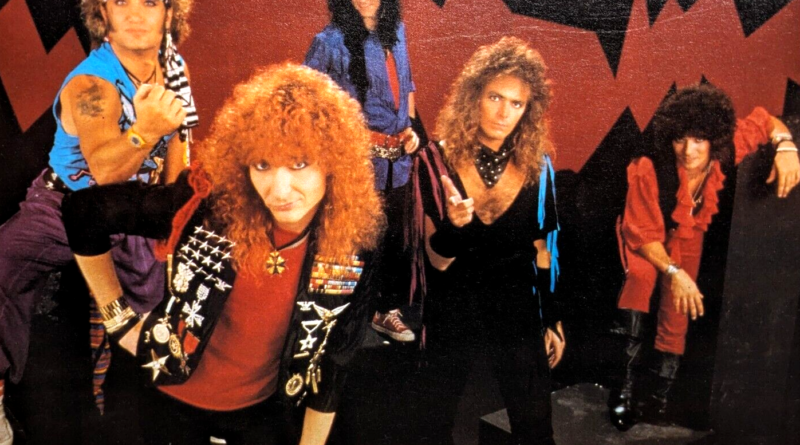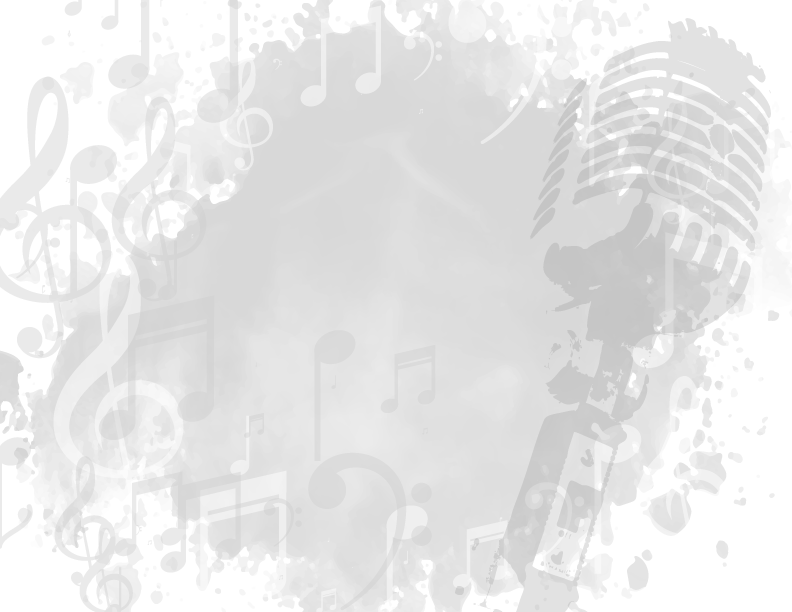Turn It Up: A Conversation With Former Autograph Frontman Steve Plunkett
By Darren Tromblay
Steve Plunkett can write songs in his sleep.
As a matter of a fact, he probably has.
The red-haired, one-time frontman of the 1980’s platinum-selling hard rock band Autograph, has penned a few thousand of songs in his long career. When Autograph parted ways after three albums in the late 1980s, Plunkett found a new calling as a songwriter and composer for television (“Beverly Hills 90210,” “Melrose Place,” “Seventh Heaven,) as well as keeping one foot in the rock ’n’ roll sphere by working with bands such as The Go-Go’s, Edgar Winter and Vixen, and doing production work for Cyndi Lauper.
Plunkett also released his first solo album in 1991. Thirty-three years later, it’s time for No. 2.
On July 26, Plunkett released his second solo album, “Straight Up,” via Cleopatra Records, an album of — you guessed it — songs written entirely by him.
Plunkett sat down with ListenIowa to talk about his new album, the glory days of Autograph, and how a now-legendary song from that album that commands listeners to “turn it up” was written in 20 minutes one morning over a cup of coffee.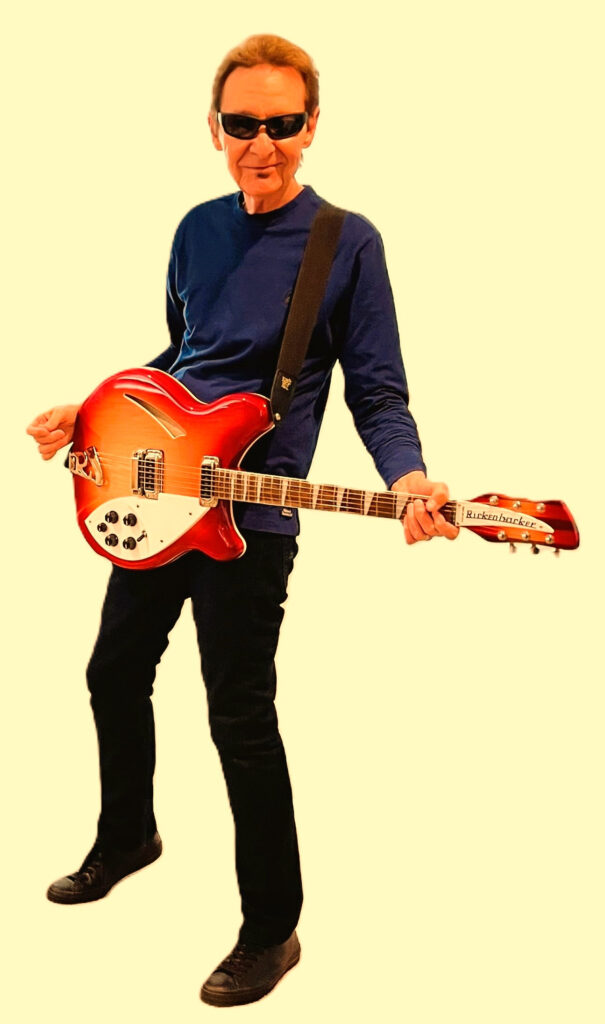
ListenIowa: It’s been awhile, Steve. Where have you been?
Steve Plunkett: After Autograph, I wanted to just write songs. That became my focus, so I became a staff writer at a music publishing company and did nothing but write songs every day for other artists, projects, TV, film, all kinds of uses. I was lucky to be able to be successful at that and got to work with a lot of other artists who recorded my songs. From there, I focused on the business side of things, and became general manager for Fender Records, which is a company my partner and I started with Fender. I was also general manager for USA Network’s collaboration with Yahoo! Music Entertainment.
So you’ve been busy is what you’re saying.
Extremely. I hadn’t had a minute to breathe until Covid. I did manage to put out my first solo album in the early ‘90s. A lot of those songs pre-existed, so it was not that big of a deal. I got a little time during Covid, as we all did, and was able to focus on myself again. And that’s when I started working on “Straight Up,” my new solo album.
Why return with a solo album now, 33 years after your first one? You’ve done pretty well with your other musical avenues.
It’s all about creativity for me. Anytime I do a project, whether it’s writing for someone else and I have to fit their criteria, or writing for myself, it’s all about the songs. I kind of just wanted to plug in my guitar and do what’s fun. After a few songs of doing that, I decided I kind of liked this direction. It’s kind of a throwback to the music I used to do when I was just getting going — guitars, bass and drums. One thing led to another, and before I knew it, I had this batch of songs in this zone that kind of fit each other. I started thinking, “Hey, this could be an album.”
Did you play all the instruments on it, or were there contributions from others?
I played everything, just because it was more convenient. It’s easier for me flow-wise. If I have an idea and want to put on some guitar, or bass or drums, or vocals, I’m right there. I’ve got my own studio. This isn’t a band album. It’s not Autograph. It’s just me.
Is the goal, then, just to put some feelers out to see what the reaction will be?
The goal is really nothing. (Laughs) It’s all creative for me. Once I get the impetus to move forward with the writing, if things flow, then it all works. And this did that. I really had no goal, no parameters, other than having fun. I didn’t want to try to get deep and clever lyrically. I just kind of left it all at the surface. I had never planned to do another solo album, but the timing was right. After all those years of writing hundreds and hundreds of songs for projects other artists, it was kind of nice to do something for me.
Do you miss playing live, Steve?
I don’t. Not at all. Before Autograph, I was in touring bands and played many years on the Sunset Strip. I’d play seven nights a week. Then it was a four-year run with Autograph where it was constant touring almost. At that point, I was ready to put on a different hat. I found it impossible to write while I was touring. There’s just no time to focus on it.
When Autograph reformed a few years ago, did they approach you at all to be a part of it?
Oh yeah. The guys called me up and said, “We’d like to do some shows, get back on the road, do a few gigs.’ And I said, “Guys, I don’t have time, or the desire. I don’t want to go back on the road. I’m very busy doing what I have been doing. But go have fun. You have my blessing. Go kick some butt out there.” (Laughs)
Have you heard anything from that version of the band, be it on YouTube or whatever?
I saw a couple of clips. I never saw the band (live) or met any of those guys.
They made some news recently with a lawsuit between your former bandmate, Steve Lynch, and the rest of the new members. Did you get pulled into that at all in any way?
I didn’t get pulled in because Steve and I had a conversation early on and I told him, “I’m not involved, I don’t know these guys, I’ve never seen the band. You and Randy (Rand) put this back together, and I don’t want to be involved on any level.” He respected that and left me totally out of it. I was grateful for that. 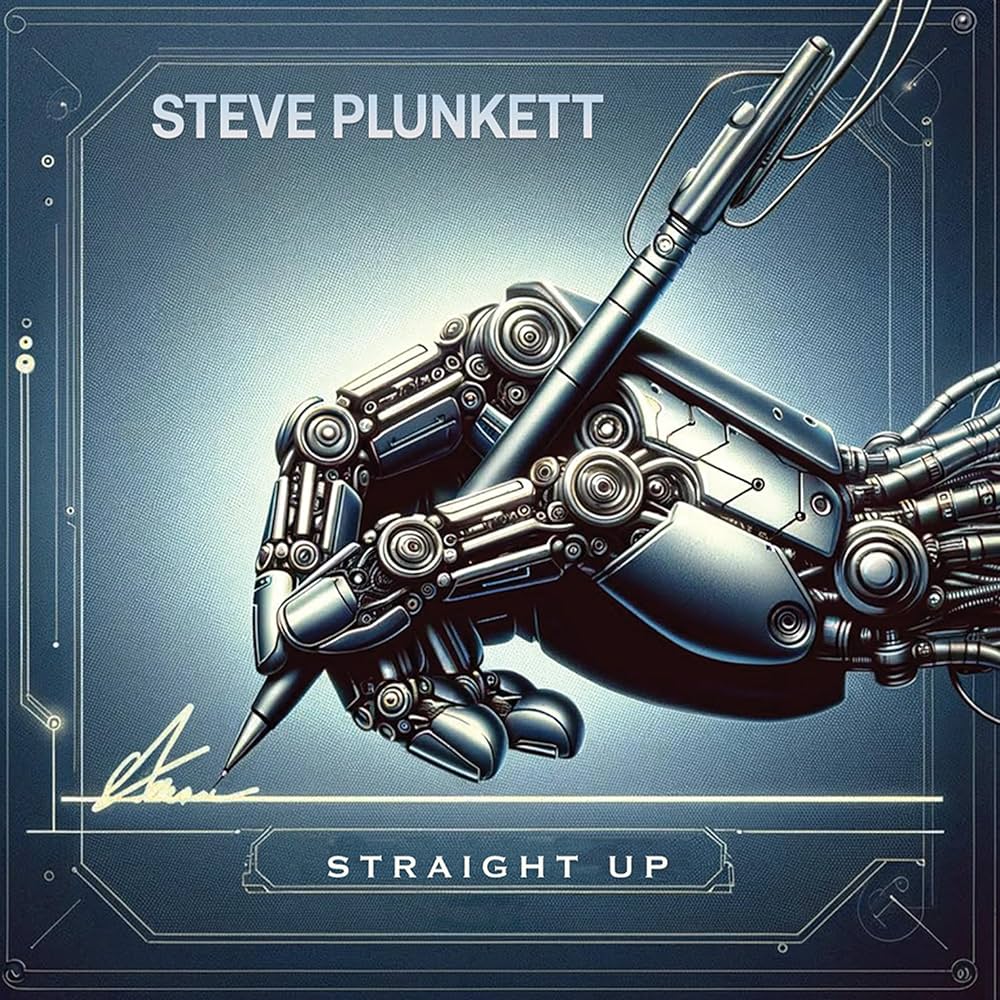
Have you spoken to Steve over the years in any other capacity than this?
Oh yeah, we spoke just recently. I wasn’t in touch with any of the other guys over those years, but Steve and I have occasionally talked and been in touch. And now he and I are the only ones left.
Yeah, that has to be strange. Three of your five former Autograph bandmates have passed away.
It’s really strange. It’s sad because you want to see people continue to do what they love and have long, good careers. But, things happen, and that’s just how life goes.
Is there any chance of you and Steve getting together and doing some songwriting, not necessarily under the banner of Autograph?
Who knows? I never try to predict what will happen musically in the future. Steve is a great guitar player. Anytime I can work with excellent musicians, I always want to.
I was listening to “Sign In Please” recently and was looking at the songwriting credits on it and noticed there was a person who wasn’t in band, Doug Foxworthy, who was credited on some of the tracks. Who was this?
Doug was a buddy of mine who was a lyricist only. He had a quirky way of approaching lyrics and would come up with some lines I would have never have thought of. Sometimes he would just bring me a title and I would write the song, like “My Girlfriend’s Boyfriend Isn’t Me.” I said, “Doug, that’s really whack, I’m going to work on that.” So that’s where that song title came from. I loved some of the titles that Doug came up with over the years, like “Cloud 10.” On the third album I was talking to him and he said he wanted to write a song called “She Never Looked That Good For Me.” He said, “You know, you see your ex girlfriend and go, ‘Wow. She really looks good. She didn’t look that good when we were going out.’ ” (Laughs) I said I loved it, and without that spark from him, that song would have never existed.
Another name was Mike Post, a hugely successful and well-known TV composer. Was he the person who helped you into the TV realm?
I was lucky to be able to work with Mike. He’s one of the greatest TV composers of all time. Stuff like “Hill Street Blues.” Mike and I wrote a couple of songs together, “Take No Prisoners,” and another one called “In One Ear and Out the Other,” which was in a movie. So in my brief time working with Mike, I learned that TV was a really good gig. I wanted to do some TV stuff as well. Later, when I became a staff writer, I got that opportunity, and I wrote hundreds of songs for things like “Beverly Hills 90210,” “Melrose Place,” and lots of others. I think that Mike’s introduction kind of opened my eyes to a whole other world that I didn’t know about.
You wrote a song called “Friday,” which, if you didn’t know who it was and just listened to the opening riff, you’d think it was .38 Special. It sounds like something they would do with the palm muting style of guitar and the sound. Were you listening to a lot of .38 Special at the time, or did they rip you off? (Laughs)
*picks up acoustic guitar and plays the opening riff in the background* Yeah, I had written that song before Autograph ever existed. Was I listening to .38 Special? Not necessarily, but I was listening to all rock radio, and they had a couple of great hits. A few of the songs on “Sign In Please” were written before there was the band Autograph. “Friday” was one of those. It was always one of my favorite songs. I just liked the feel of the music, and that’s what people did on weekends, go down to the Sunset Strip on Friday and Saturday night.
We are 40 years down the road from the release of “Turn Up the Radio” from the “Sign In Please” album, and that song is iconic as it’s ever been. It’s played at professional sporting events, radio, everywhere. What was the genesis of that tune?
The music happened in a rehearsal, and somebody said, “Let’s do something like (Foreigner’s) ‘Hot Blooded,’ ” with that eighth-note guitar feel. So we started jamming on that and a rough musical idea came out. I had my little cassette player going and the next morning I sat down with a cup of coffee and wrote the lyrics and melody in about 20 minutes. We came back into rehearsal the next day and it kind of just turned into a song. It really didn’t click at first, though, until a promo guy at RCA Records said it was going to be the first single but felt that people listening on the radio needed to know what a great guitar player Steve Lynch is. He asked if we could put a guitar solo at the beginning of the song, and that’s when we put on that whole two-minute section at the beginning, just to let Steve shred a little bit. Then it clicked. 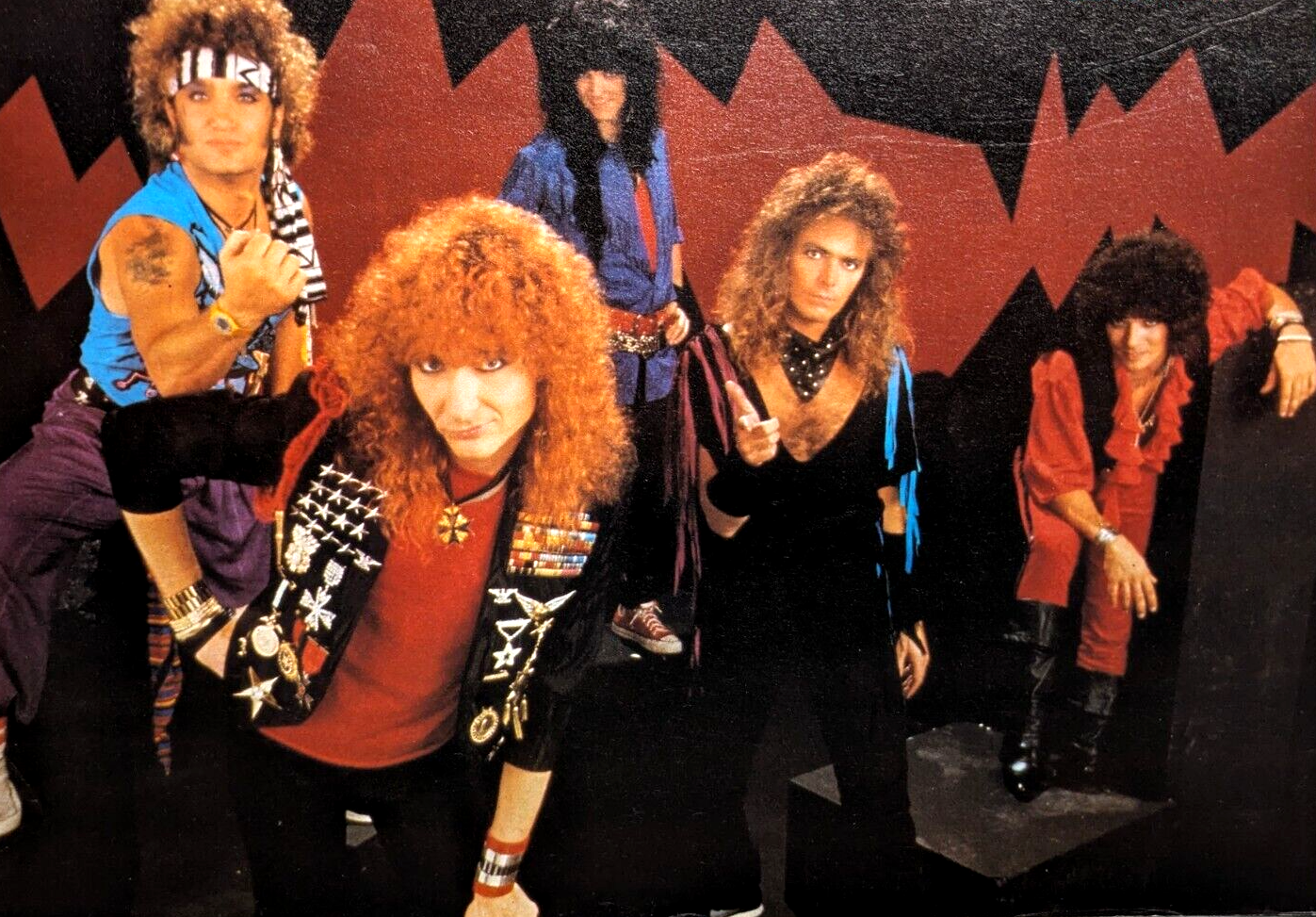
You guys got off to a fast start, getting the opening slot on Van Halen’s 1984 tour. When you got the offer, you guys didn’t even have an album out, or even have a name for the band. You just got in a van and drove to the first gig in Florida. (Laughs)
Nobody knew who we were, including Van Halen. (Laughs) I remember the first night, Alex (Van Halen, drummer for VH) told us that all of their opening acts get booed off the stage, and people thew stuff at them. If we didn’t make it through the week, we weren’t supposed to feel bad; that’s just how it goes, he said. (Laughs)
But you stuck around.
Yeah, 48 shows later, we were still there.
Did anybody from the Van Halen camp thank you for sticking it out?
They treated us well. Part-way through the tour, , though, we became so financially strained and were killing ourselves driving every night. We went to Ed (Van Halen) and said, “Dude, we need some money. We want to stay on tour, but we can’t afford to.” He provided what we needed, and that was a big blessing for us. We were able to stay on. We had a good camaraderie with those guys. When it came time to leave the tour, they pulled a lot of good pranks on us the last night. (Laughs) But it was a great experience and we were so happy to have gotten to do it.
Does any concert footage of Autograph playing live in the 1980s exist?
I’m not aware of any. We did a couple of dates at Long Beach Arena where we made videos for “Loud and Clear” and “She Never Looked That Good For Me,” but we weren’t actually playing live. There was a lot of footage because a film crew was following us for about eight hours a day, but there wasn’t anything live. I wish there was some good quality concert footage. There are a few live recordings, but no video.
You guys seemingly had everything going that should have made Autograph bigger than you ended up getting. You had the tunes, the look, the hooks. What happened?
That’s a great question. There are so many factors. We got off to a great start with “Turn Up The Radio,” and toured with some major groups. But everything beyond that, the other side of the coin, wasn’t handled by band. We weren’t well versed in radio, or singles, or what should come out. We were totally dependent on RCA, and I think they did the best they could, but there was a lot of traffic on radio at that point. There were a ton of groups doing that ‘80s sounding rock. It was actually getting saturated already. Perhaps if we had released different songs at different times it would have helped, but it’s a hard question to answer. Everyone on the team was doing what they thought was right, and we were out there slugging away on tour. I think we hit a good stride on our third album, “Loud and Clear,” songwriting-wise and production-wise, but to me, that’s when radio started to shift formats. Unless you were a major superstar, you were going uphill at that point.
So you could sense that change when it came about in the late 80s.
We could all sense it. We would put out videos, and they weren’t getting the traction we expected. The beginning of the grunge thing with Nirvana was really affecting some radio stations. A lot of the mainstream, hard rock and classic radio stations were struggling with listenership. We could see the writing on the wall, and that played into our decision in 1989 to kind of shake hands and walk away. Our kind of music was no long the flavor of the month or week, and we were not willing to change. Once you’ve established a style and sound as a band, it is what it is.
Over the years did the band get offers from festivals or other venues, to reunite for one-offs, or something of that nature?
Yeah, there were offers, and that was part of the reformation the other guys went through when they went back on the road. They were getting offers, as were all of the other ‘80s bands. You could play gigs at bars and casinos and cruises and clubs and all of that kind of stuff. If you wanted to do that kind of thing, it was available again, and I think that’s why a lot of groups have done it. They’re once again viable in the circuit. They aren’t selling records, but they can make a living touring.
DT

